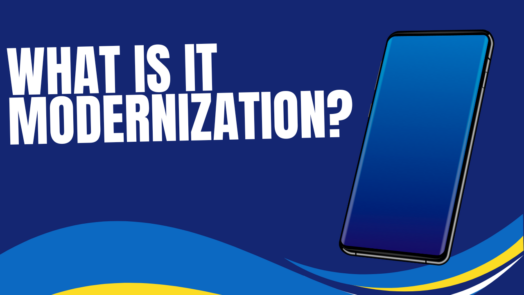IT is a big part of any industry, and that includes the insurance business. Do you understand the effect that technology trends are having on the industry you work in?
Technology has been changing the world for centuries, but in the last few decades, that change has accelerated. The Internet, the cloud, digitization and more have contributed to an all-new understanding of technology trends and how they shape our personal and professional lives.
One term for this is “digital transformation”. It’s is one of the biggest buzz phrases going around the business community right now. In fact, two-thirds of CEOs plan to focus on digital transformation by the end of this year alone.
At its simplest, this is the initiative to use technology for better business outcomes. That’s rather general though, isn’t it?
To understand it, it may be more effective to look at the way technology is changing the workplace, such as that…
- 80% of the workforce operates at least in part from outside the office.
- A vast majority (up to 80%) of IT budgets are directed towards “business as usual”.
The fact is that, whether you embrace technology or not, the people you interact with (your customers and employees) will expect you to. If you don’t, they’ll work with someone else who does.
Don’t believe it?
- 75% of consumers say they’re more likely to buy from you if you know their name, purchase history and can recommend products/services based on that info.
- 38% of millennial staff members state that outdated collaboration tools have a negative effect on innovation.
That’s why you need to make an effort to understand how technology can affect positive change in the work that you do. From customer experience to workflow optimization, technology is playing a big role in the way businesses operate.

Top 5 Technology Trends You Need To Track In The Insurance Industry
Technology Trend #1: Automation
Though not a new concept in technology, automation is nonetheless a crucial part of optimal IT in today’s world. By equipping your staff with dependable automated processes, you can remove the unpredictable nature of human error from daily tasks, as well as IT support processes like monitoring, backups, and more.
Technology Trend #2: The Internet Of Things
More and more users are buying Internet of Things (IoT) devices for their homes and workplaces, and even devices that they carry with them, that require a connection to the Internet; and typically, that connections provided via wireless, such as WiFi or Bluetooth connection.
The ever-expanding network of IoT devices offers a range of convenient benefits to consumers, and offers exciting applications in the business world as well, from office space management to agriculture weather monitoring.
A popular new arena for technology, it’s estimated that there will be 64 billion IoT devices worldwide by 2025. IoT is a natural evolution of the Internet, consisting of a myriad of new “smart” and “connected” products and technologies for the commercial, consumer, and government environments.
Technology Trend #3: Mobility
Did you know that 80% of the workforce operates at least in part from outside the office?
That’s thanks to a combination of the cloud and the mobile devices that each and every person you work with carries around in their pocket. By 2020, the number of smartphone users worldwide is expected to reach 2.87 billion.
Mobility has delivered a number of advantages to organizations that are willing to embrace new technology, including:
- Cost-Effect
Having your staff use their own personal devices for work means that you don’t have to pay for the technology they’d be using otherwise. Depending on the size of your practice, that could mean potential savings of thousands of dollars that would have been necessary to pay for tablets and work phones. - Convenience & User Experience
Allowing your staff to use their technology also means there’s no pesky learning curve to overcome with new devices. Instead of having to ensure your staff knows how to use the hardware at work, they can simply use the phone, tablet and/or laptop they’re already familiar with.
- Productivity
Being able to use a mobile device, managing and executing tasks using the devices they’re familiar with can greatly boost productivity – in some cases, up to 53%.
Technology Trend #4: Artificial Intelligence
Artificial Intelligence is a technology that allows computers to correctly make decisions that would otherwise be left up to users.
According to an MIT-Boston Consulting Group survey, a vast majority (more than 80%) of surveyed executives report that they believe Artificial Intelligence offers a competitive advantage, and nearly the same amount believe it will increase their company’s productivity.
Over the past few years, developments and leaps in the furthering of machine-learning have led to the integration of Artificial Intelligence into products you already use or future versions of products you use.
The two primary popular forms this has taken in the consumer and business worlds to date include:
- Machine-learning, which exponentially improves the frequency with which it makes correct decisions by accumulating data and repeating processes (i.e., it “learns” by rote)
- Speech-based technology that can understand spoken word in multiple languages, allowing it to execute tasks by verbal input (e.g. Siri, Alexa, Google Assistant)
Technology Trend #5: Business Intelligence
In the everchanging landscape of business technology, Business Intelligence is still relatively new. Business Intelligence is the collection and analysis of data collected such as department productivity, overall growth, sales trends, and customer behavior.
Reporting and querying software extracts, sorts, summarizes, and presents selected data. This data could range from sale reports of specific items to a measurement of the efficiency of marketing plans. Business Intelligence will help you manage your business more effectively.
Don’t let technology trends pass you by – keep an eye on them, consider how they could benefit your insurance firm, and ask your IT company for their advice if you’re unsure.
Like this article? Check out the following blogs to learn more:
How to Find the Right IT Services Company
What Are The HIPAA Liabilities For Doctors When A Data Breach Occurs?





